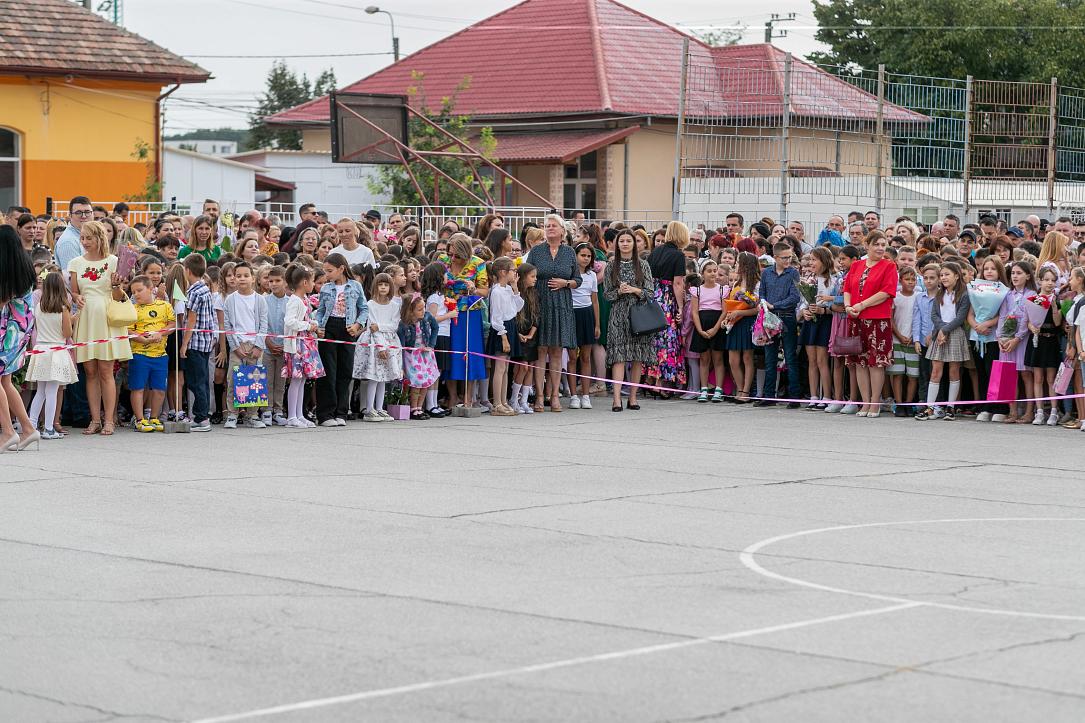New school year kicks off in Romania



Approximately three million students and preschoolers in Romania started the 2024-2025 school year on Monday, September 9, which will last 36 weeks.
This is the first school year in which a new student statute and a new school regulation will be implemented, following the adoption of the Education Law last year. Changes include feedback given by students to teachers, establishing special rooms for students who disrupt classes, and scheduling oral exams for the baccalaureate exam during the school year.
All the changes proposed by the Ministry of Education are outlined in the new Student Statute and the general school regulation, including updates regarding the behavior expected from teachers and students.
Romania’s schools include 300,000 teachers and auxiliary staff and roughly 3 million students. Among other figures, it is important to note that in 19 schools, students are still learning in three shifts, but this practice will be banned starting in the 2025/2026 school year.
At the same time, 70 schools still have outdoor bathrooms, and over 800 schools are being relocated for rehabilitation, modernization, or the construction of new spaces.
Finally, more than 2,200 schools are part of the hot meal program - under the National Healthy Meal Program - providing around 650,000 children with a meal at school, according to Free Europe Romania.
Students are also offered several types of scholarships, between RON 300 (EUR 60) to RON 3,000 (EUR 600). These are meant to support high-achieving students, but also those from disadvantaged backgrounds, those undergoing vocational and technical education, and mothers who are minors themselves.
President Klaus Iohannis attended the opening ceremony of the new school year at the "Mihai Viteazul" College in Bucharest on Monday. He talked about school safety as a priority of the "Educated Romania" project, integrated into the 2023 education laws, and emphasized that the results of educational reforms will become visible over time.
The president stated that student success depends on good collaboration and communication between family and school, as well as the moral support children receive from their parents. Plus, he noted that regarding school infrastructure and equipment, "we have the necessary funds to continue modernizing educational spaces, including the development of 'green schools'."
President Iohannis also highlighted that Romania benefits from an additional EUR 2.2 billion for education and training through the Operational Program Education and Employment, part of the National Recovery and Resilience Plan.
In anticipation of the opening of the new school year, the most recent study conducted by Reveal Marketing Research aimed to learn more about Romanians' perceptions of the education system as well as the issue of unemployment among young graduates. The research revealed that only 34% of respondents believe that traditional education prepares children to a large or very large extent for life. It is noteworthy that this perception is stronger in rural areas, where 39% of respondents consider traditional education adequate, compared to only 32% in urban areas.
The same study also found that 71% of Romanians who have children or know recent high school or university graduates say they have faced difficulties in finding a job. Moreover, 56% of parents with children under 18 are willing to pay to provide their children with the opportunity to study subjects they are passionate about.
According to respondents, the main causes of youth unemployment are the lack of practical experience (59%), overly high employer demands (48%), lack of opportunities in their area (42%), excessively high salary expectations (42%), and choosing fields of study with limited prospects (28%). Based on socio-demographic characteristics, overly high employer demands are seen as a more significant issue among urban residents (51%) compared to those in rural areas (43%).
The majority believe the government is primarily responsible for reducing youth unemployment (42%), followed by employers (18%), young people themselves (10%), and educational institutions (9%). Additionally, 17% of respondents think responsibility is shared among all these parties.
(Photo source: Inquam Photos | Virgil Simonescu)